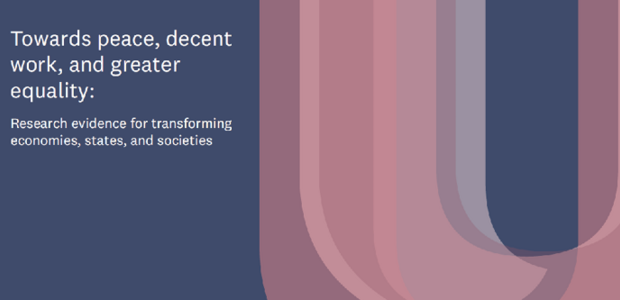Accelerating progress towards decent work and fairer societies – joint event with ESCAP
For 30 years global inequality has been falling, but a closer look at the data reveals that this is driven by a decline in inequality between populous countries, while inequality within countries is climbing. Given the implications of high inequality to education, public health, economic wellbeing, and democratization, reducing within-country inequality is essential to foster fairer societies.
To address inequality, a key priority is to ensure decent work for all. This requires rethinking education and training, while considering the changes that automation is bringing, and building opportunities for informal workers to move up the job ladder.
Against this backdrop, the United Nations Economic and Social Commission for Asia and the Pacific (ESCAP) is partnering with UNU-WIDER for a discussion on how to build fairer societies through decent work.
Watch the livestream here
The event will commence with the launch of UNU-WIDER’s report Towards peace, decent work, and greater equality, which synthesizes the institute’s most salient research and policy lessons on three universal aspirations shared by humans everywhere—peace, decent work, and fairer societies. It outlines major findings that support fulfilment of these universal aspirations and identifies opportunities for action that can accelerate progress towards the SDGs.
In the panel discussion experts from the UN, academic, and policy networks exchange ideas and opportunities for progress towards decent work and greater equality at the speed necessary for achieving global goals by the 2030 deadline.
Programme (Bangkok time zone UTC+7)
| 08:30 – 09:00 | Registration |
| 09:00 – 09:05 | Welcome Kunal Sen, Director, UNU-WIDER |
| 09:05 – 09:10 | Opening Remarks Armida Salsiah Alisjahbana, USG and Executive Secretary of ESCAP |
| 09:10 – 09:30 | Presentation of the synthesis report Kunal Sen, Director, UNU-WIDER |
| 09:30 – 11:00 | Panel debate and interactive discussion with the audience Chair | Srinivas Tata, Director, Social Development Division, (ESCAP) Panelists Kunal Sen Director, UNU-WIDER Hamza Ali Malik Director, Macroeconomic Policy and Financing for Development Division, ESCAP Ken Chamuva Shawa, Head, Regional Economic and Social Analysis Unit, ILO Regional Office for Asia and the Pacific Mitsue Uemura, Regional Education Chief, UNICEF |
| 11:00 – 11:30 | Coffee reception |
 Join the network
Join the network
